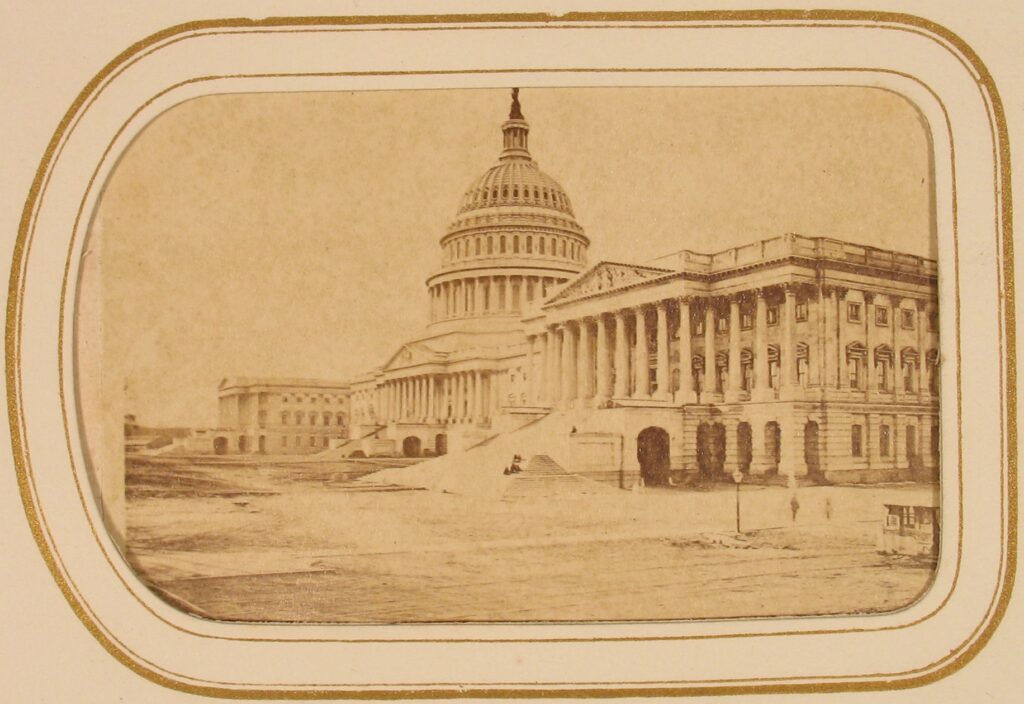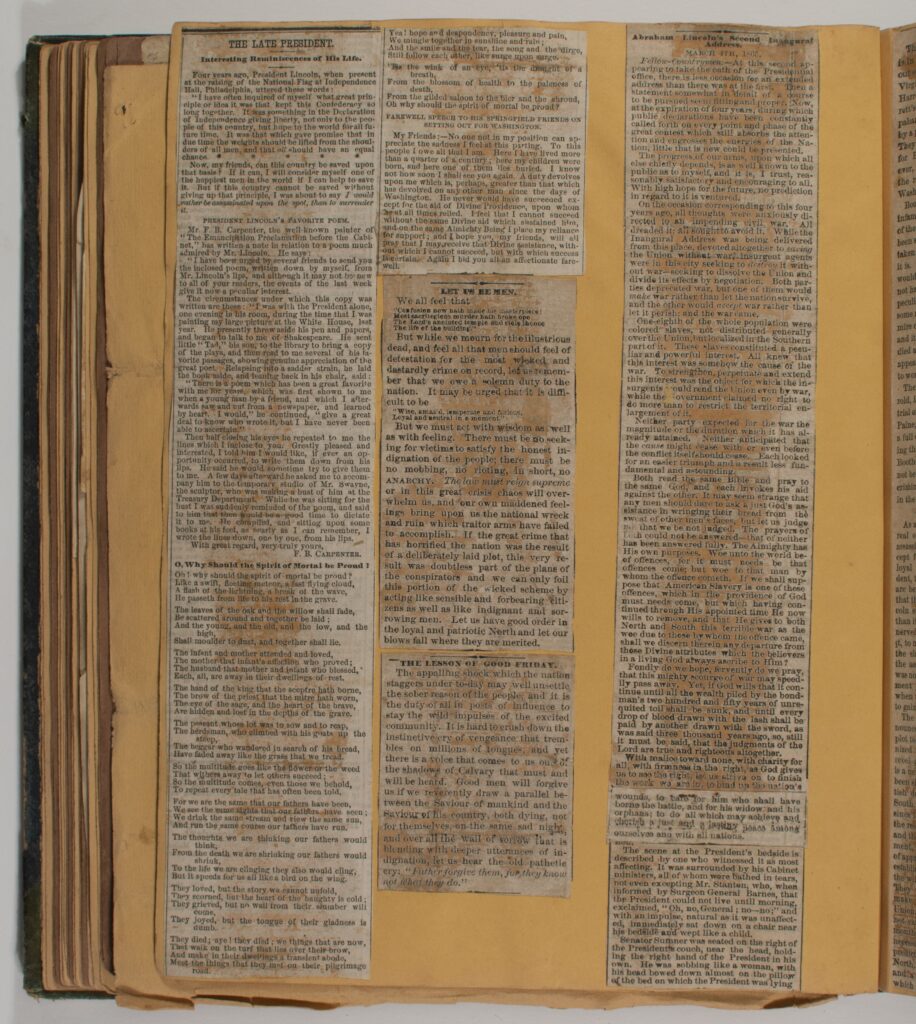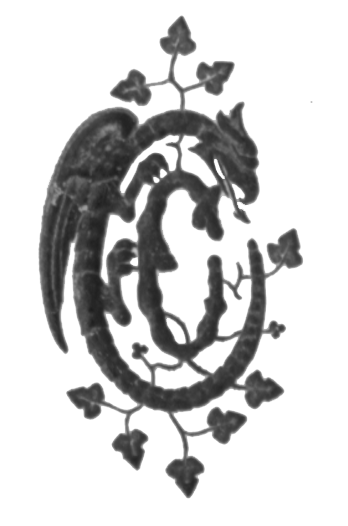
Political Commentary
While the correspondence in the Cope-Evans Family papers often focuses on insular family affairs, the Copes and Evanses alike were deeply engaged with the world around them. In addition to Quaker affairs, debates about political figures and news about national events, from Andrew Jackson’s attack on the National Bank to the first World War, were occasional topics of discussion in the family letters as the families engaged with the world around them.
The following excerpts outline the Cope-Evans family’s reactions to several key national events. As you read, consider their sources–who is writing? How does their age, gender, religious conviction, and social status inform their reaction to the news? How are they accessing the news–are they reading about it in newspapers, are they seeing it happen, or did they hear about it from someone else?
Further exploration of the Cope-Evans Family papers may reveal more in terms of the family’s engagement in politics beyond their responses to national news.
1834: Andrew Jackson and the National Bank
Brothers Alfred, Henry, and William Cope exchanged letters that often critiqued the policies of President Andrew Jackson. The defining issue of debate leading up to the 1832 election, both nationally and within the Cope-Evans family, was the rechartering of the National Bank. Throughout his presidency (1829-1837), Jackson vetoed all bills related to the bank because he viewed it as a corrupt institution; such vetoes would have drastic implications on the international trade of the Copes’ shipping business. In writing to Alfred from Philadelphia on January 22, 1834, Henry expressed his concern regarding the falling prices of cotton abroad and the rising interest rates, stating,
I think the scarcity of money cannot last more than a few months, as the decrease in all kinds of business will cause much less to be wanted by traders. I see no prospect of relief from Congress, as Jackson is determined to put his veto on any measure that he may think favours the Bk U. States.
Less than a week later on January 31, Henry wrote to Alfred again repeating his criticism of Jackson. “The President,” he wrote, “seems immovably fixed in his determination to put down the U.S. Bank & I see no prospect of two thirds of both houses of Congress acting in opposition to him.” His father, Thomas Pim Cope, shared this opinion, writing to Alfred on February 28 that
Genl Jackson seems to be determined let the consequences be what they may, to crush the Bank of the United States. & such is the foolish nay mad devotion of his immediate partizans, that they are as determined to support him, reckless as to the future. To day we have a message from our Governor, to the Legislature, announcing the failure of his attempts to borrow money. & labouring to throw the blame on the Bank- besides the injustice of this charge, he appears to be but little aware of the effect this will produce on money lenders at home & abroad. Who are [—] thy set, & will be alarmed with fears that the state may not be able to pay the interest of its vast debt- Had he posessed the manliness to recommend the recharter of the Bk public confidence would at once have been restored, & with it the facility of borrowing. He contemplated the stopage of the public works- Who will then be able to calculate the public loss? There can of course be little or no income, & the works themselves must be injured if not ruined.
Though Thomas mentions the impact on public works, the Copes were not without self-interest as their business hung in the balance. Thomas also makes reference to the issue of blind party loyalty, an issue that would continue to plague the typically Republican-aligned Quakers throughout the nineteenth century.
1861: The Civil War Begins
Quakers have a long history of engagement with enslavement and abolition. On April 28, 1861, just weeks after the Battle of Fort Sumter, Clementine Cope wrote to her cousin Ruth Anna about her recent journey to Woodbourne. Along the way, “Cousin Sarah” met
a nice young girl who was going from school in [Philadelphia] to her home in Oxford–sent for to take leave of her father who was going to the war. The soldiers & the excitement seemed to diminish the further we left the city behind us.
By November of that year the “excitement” and quickly changing circumstances of the beginning of the war had settled into a routine. Anna Stewardson Cope wrote to her husband Francis Reeve Cope that
This evening we are sitting in the parler with Job and Mary Williams around the center table, most of us reading the newspapers which confirm the news of the grand success of our fleet as the south, but I wonder how it will all end, the rebels with [property?] try to retake the forts, and then will be hard fighting[yet?], I only hope they will not burn their cities, it seems so awful.
What kind of newspapers do you think they were reading? Writing from Newport, Rhode Island, was Anna reading the local Newport Daily News or a Quaker publication? How might the coverage of the war differ between the two?
1865: Lincoln’s Assassination and Andrew Jackson

When President Lincoln’s funeral train arrived in Philadelphia in late April 1865 and his body was on view at Independence Hall, droves of people arrived to pay their respects (Beers, 417-418). Lincoln’s funeral train would stop in several major cities in the journey from Washington, D.C., to Springfield, Illinois. The emotional response to his sudden death was evident in the letters from members of the Cope family.
In a portion of a letter dated April 18, 1865, Clementine wrote to her mother and sisters:
I have laid aside my letter for two or three days, for we have all felt so sad since the dreadful news that I [could] not feel like writing about ordinary things [and] there seemed little to say on the one great subject – the presidents dreadful death, which seemed dreadful enough to strike every one dumb with horror [and] astonishment.
Clementine had been teaching at the Freedmen’s Relief Assocation’s school in Baltimore for the previous month and, when she began writing the letter on April 11, was writing home to share stories of her time in Baltimore before she dropped her pen. On April 21, the teachers dismissed the students early. Clementine went to a store on Market St. to get a view of the funeral train. She sat perched near a window as “the most touching & mournful procession” passed by. “It will take a long time to forget the grief & horror of this sad event — but work has to be done” she wrote in a letter to her sister Annette on April 25.
As Clementine returned to her duties at the school, she continued to follow the news of Lincoln’s funeral closely and included a newspaper clipping about the funeral train’s arrival in New York on April 24, 1865 in her scrapbook.
When President Andrew Johnson was sworn into office on April 15, 1865, many Americans wondered about the fate of the South following the Civil War. The following month, Susan Reeve wrote to Ruth Anna Cope that
It seems to me we have, every day, reason to mourn death of our own dear good President – Johnson is so different – & if he should get us into a Mexican war it would be so sad. But we can but hope for the best. Was it not wonderful how suddenly & completely the Rebellion came to an end…Poor Jeff [Jefferson Davis] makes a sorry figure in his humiliation he is showing very plainly what a poor miserable specimen of a man he was.
Francis Reeve Cope wrote his own criticisms of President Johnson in a letter to his daughter Rachel Reeve Cope Evans on February 25, 1866, three days after Johnson had delivered an unpopular speech that ignited further criticisms of his Reconstruction policies.
Our live President, chosen to air the Union men of the South to our side, seems to be doing his best to destroy the good work the chief war engaged in when called from works to rewards. It is the most humiliating thing this nation has had to endure for many years — worse even than his drunken inauguration speech.
How do Susan Reeve’s and Francis Reeve Cope’s perceptions of Jackson differ? How does Reeve’s invocation of manliness compare to Cope’s Thomas P. Cope’s considerations of the Pennsylvania governor in 1834?
1901: McKinley’s Assassination
In 1901, the assassination of President William McKinley at the Pan-American Exposition in Buffalo, New York shocked the nation. While shaking hands with fairgoers on September 6, McKinley was shot. Immediate medical attention suggested he may recover, before he died of infection on September 14.
Anna Stewardson Cope closely tracked McKinley’s condition. In her letter to daughter Rachel Reeve Cope on September 16, 1901, Anna reported that Theodore Roosevelt, then McKinley’s vice president,
was up at Mt Marcy…having been at Buffalo, at first for several days, then left, as the physicians were so much encouraged, and were so decided that he [McKinley] would re–cover, Every body was hopeful for a week., and then it was a terrible shock to hear that he could not live.
Anna expressed her reaction to the news writing that she had “much greeved at the President’s death, it is so shocking to think of his being shot, whilst he was welcoming the people in such a personal way.” She expressed sympathy to McKinley’s wife writing that she “must be a wonderfully calm temperment to have borne up so well.” As with Lincoln’s assassination, female members of the Cope family took the death almost personally, indicating a particular reverence for the nation’s leaders. Upon McKinley’s death, Vice President Theodore Roosevelt was sworn into office. “I hope [Theodore] Roosevelt may prove a good ruler,” Anna wrote, further cementing the idea of the Cope family as loyal subjects.
1918: End of World War I
Few letters from 1914 to 1918 exist in the Cope-Evans Family papers. On the eve of the armistice, family friend Joseph Paul Morris wrote about “this great, terrible mistake” he called the First World War as he worked with allied prisoners in Switzerland as part of the Young Men’s Christian Association:
This day comes the official anouncement of the signing of the armistice with Austria, and as I look into the next room, I see 40 or so of French and Belgian interned prisoners (?) sitting around, drinking chocolate or coffee and eating little cakes, or smoking, and they are all very happy over the news.
How might the Quaker peace testimony have impacted the Cope-Evans family’s reactions to the war? How do those reactions differ from the Civil War?

